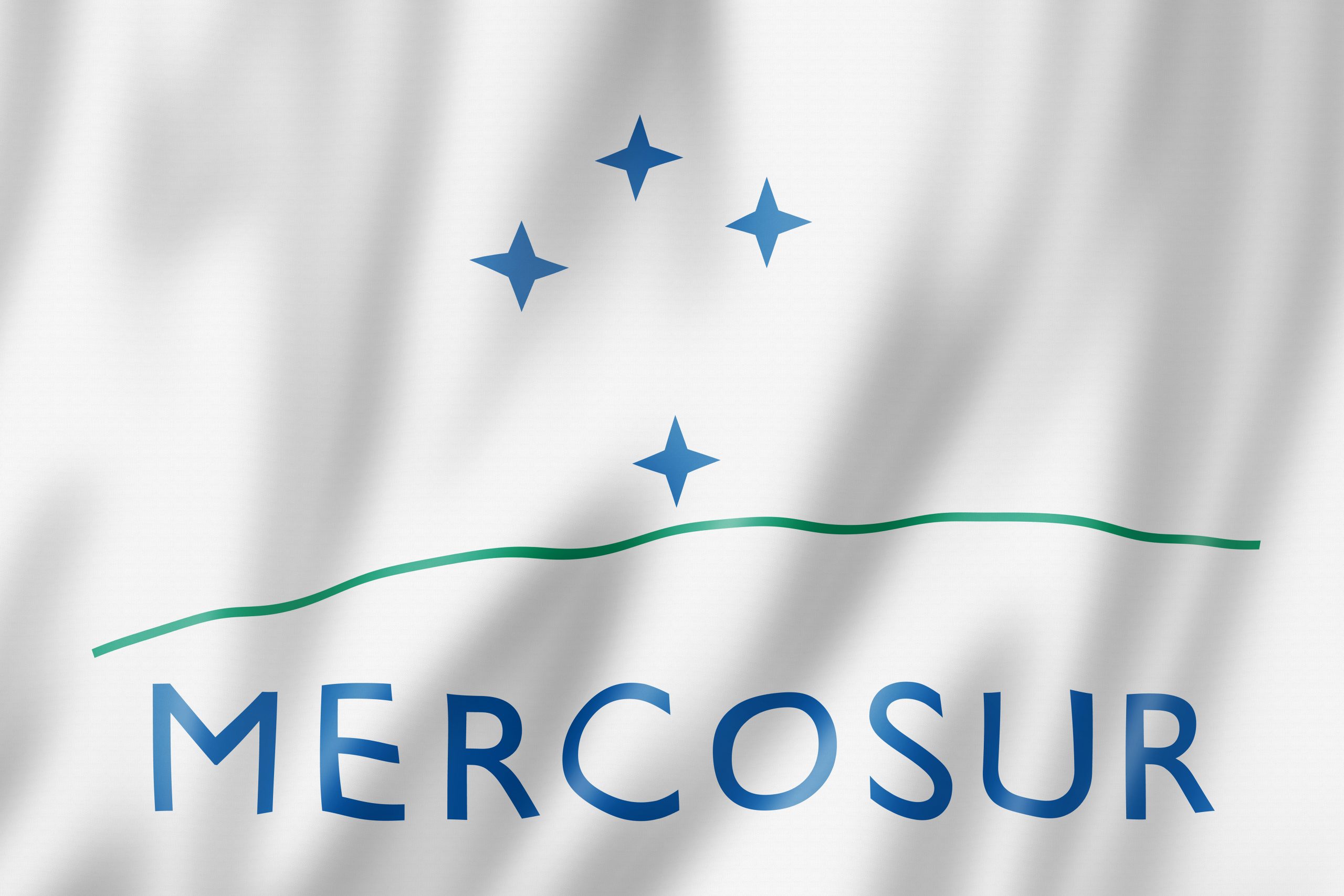All looked set for 7 December 2023: after nearly a quarter of a century of negotiations, the European Union and the four members of the Mercosur customs union – Argentina, Brazil, Paraguay, and Uruguay – were due to sign a free trade agreement in Rio de Janeiro. Yet as several times before, all did not go according to plan for the seemingly doomed deal. A few days before the Rio summit, French president Emmanuel Macron declared that the deal did not offer enough environmental guarantees, dashing hopes that the agreement would be inked.
The proposed free trade agreement between the EU and Mercosur is not ideal. A quick Google search yields alarming results about the potential negative impact of the deal on environmental issues, labour rights, animal welfare, safety standards, and procurement processes. Macron’s reservations also speak to tricky domestic politics in France. The French president does not have a majority in parliament, making a ratification of the agreement unlikely. In addition, Macron worries that far-right parties could use the perceived downsides of the agreement on France’s beef and poultry sectors to attract votes from farmers in the June elections for the European Parliament. These concerns, alongside those of a handful of other EU member states like Austria, are valid. But the bigger picture is that not signing the deal would be short-sighted and harm Europe’s interests.
The usual economic argument in favour of the EU-Mercosur deal revolves around the fact that the free trade area would be huge, covering around 750 million people and about one-fifth of the global economy. Despite these impressive metrics, the economic impact of the agreement would be small for the EU; the deal would provide a GDP boost of only around 0.1-0.3 per cent. This is because trade between Europe and Mercosur economies is low, with the Latin American customs union absorbing only 2 per cent of the EU’s global exports.
The agreement’s economic value lies elsewhere. It is two-fold: firstly, Mercosur countries hold vast reserves of the critical raw materials that will be crucial for the EU’s green energy transition. This is excellent news for Brussels, given the bloc’s goal to curb reliance on China for such commodities. Brazil, for instance, has around 20 per cent of the world’s reserves of graphite, nickel, manganese, and rare earths (all crucial elements for clean tech equipment). The country also holds 94 per cent of global reserves of niobium, a metal that is used in the aerospace sector and features in the EU’s list of critical raw materials. Brazil is not the only Mercosur country with such large deposits of critical raw materials: Argentina has the world’s third-largest reserves of lithium, a key input for electric-vehicle batteries.
Secondly, a free trade deal with Mercosur would support Europe’s de-risking efforts. European institutions are hard at work trying to find ways to convince EU firms to relocate supply chains away from China, ideally to like-minded countries (read: democracies). The EU-Mercosur free trade agreement would help to do just that. By lowering tariffs on European exports to Mercosur economies, notably for chemicals (currently facing an 18 per cent tariff) and machinery (hit by tariffs of 14-20 per cent), the deal could help to convince European firms to develop production lines in Latin America. Mercosur countries are not untapped territory for European companies; the EU is already the biggest source of foreign direct investment in the customs union. The timing of the deal looks perfect for Mercosur countries, too: in recent years they have embarked on ambitious policy reforms to develop their local industrial sectors.
Beyond economics, the EU-Mercosur deal also has wider geopolitical value. Latin America is a region of intense competition for influencebetween Western countries and China. This is not new: at the height of the covid-19 pandemic, China’s vaccine diplomacy focused on Latin America. A failure to sign the EU-Mercosur free trade agreement risks pushing Latin American economies closer to Beijing’s orbit. Uruguay, in particular, has long voiced its preference for a free trade deal with China over one with the EU. The Uruguayan government has solid arguments: China is the top destination for Mercosur exports and Beijing has planned to invest $250 billion in the region by 2025 (an amount five times higher than that inked in the EU’s Global Gateway programme). So far other Mercosur countries are prioritising a free trade deal with the EU over one with China, but their patience is wearing thin.
Other emerging economies are closely following the state of negotiations between the EU and Mercosur. The EU’s maximalist wish lists of demands from developingeconomies willing to sign free trade agreements are increasingly perceived as patronising. In private conversations, Indian officials struggle to hide their frustration when they discuss the state of negotiations for a free trade agreement with the EU. This does nothing to boost the bloc’s global approval ratings at a time when emerging economies increasingly favour transactional, à la carte approaches in their economic and diplomatic relations. As Brazil’s president Luiz Inácio Lula da Silva put it in July after the EU sent Mercosur countries a stern letter asking them to comply with the Paris agreement or forget about the EU-Mercosur free trade deal, “two strategic partners do not discuss threats. We discuss proposals.”
Suggesting that Mercosur countries will be deprived of a free trade agreement with the EU if they do not meet Brussels’s demands is counterproductive. Negotiating is the art of reaching a compromise. One side can always ask for more, but at some point the other party may choose to walk away if it feels it is not treated as an equal, but as a minnow. Mercosur countries are close to this tipping point and know that if things go sour with the EU, China will welcome them with open arms. Besides, the best way for the EU to push for higher environmental standards in Mercosur countries may well be to deepen its influence in the region. The proposed agreement includes a whole chapter on environmental standards – a useful base to build upon in the future. Again, the alternative is to push Latin America closer to China, which is unlikely to ever ask for guarantees that Brazil will put an end to deforestation.
Time is of the essence for the EU-Mercosur free trade agreement. Far-right, populist parties could attract a significant share of the votes in the June European Parliament elections. Such anti-globalisation, protectionist parties could be reluctant to ratify the deal in Strasbourg. Six months later, former US president Donald Trump could well return to the White House and reignite the trade wars he had started. If this happens, the free trade agreement with Mercosur would serve as an insurance policy for the EU to show its commitment to the rules-based multilateral order. Europe’s economic priority of the day is to develop partnerships with emerging economies to de-risk from China. If the bloc is serious about this plan, signing the free trade deal with Mercosur would be the most logical first step.
About the Author
Agathe Demarais is a senior policy fellow for geoeconomics at the European Council on Foreign Relations. Her areas of interest include the global economy, geopolitics, and sanctions. She is based in London, with frequent trips to Paris.


